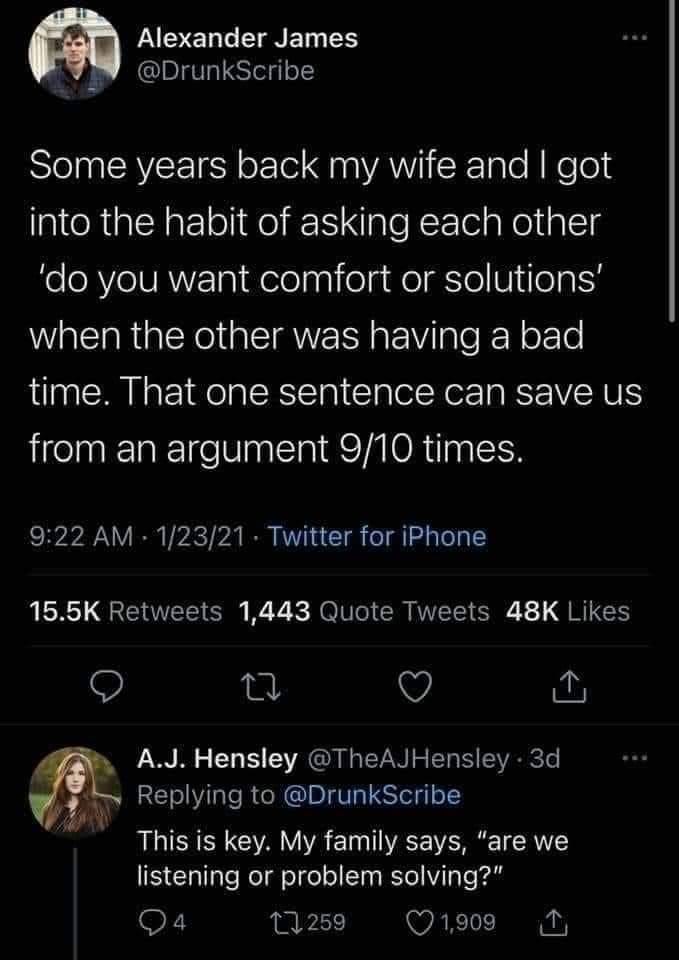I have been married for 15 years, and before that, my wife and I dated for a little over 5 years. With all of that time together, you would think that I would be an expert in communication with my wife. But I constantly have to work on this skill. I wanted to share something here that I find simple, yet profound (as an aside, this is one of the cleareast hallmarks of wisdom to me— simple yet truly profound). It came from a friend’s Facebook meme, of all places!
This week, I was reminded that one of my weakest areas of communication is LISTENING. Too many times, when I am in a conversation with people I find that I am NOT truly listening— instead, I am either thinking about what I want to say next, or how I can HELP SOLVE THEIR PROBLEM, because isn’t that what I’m here for?
In an effort to help myself become a better listener, I have outlined the following three items I communicate to other people (my wife included!) when I only listen to solve problems.
I am communicating that I think my time is more important.
Even if I don’t actually think this, it is clear that when I am rushing through the conversation to offer my solution and advice, what I am saying is that I don’t have time to truly listen to the other person and let them share what they need to say.I am communicating that I think I am more intelligent/capable than the other.
Again, it doesn’t matter whether or not I truly think this. By interjecting my solid gold plan to solve their problems, I am leaving them with the impression that I have the answers to their solution; they are incapable of figuring out what to do; and “Boy! Aren’t you lucky I am here to set you on the right path?”I am communicating that only PART of the message matters.
When I am listening only so I can respond, what I am saying is that only a small portion of the message matters— basically, the few data points I need to respond and to offer my fool-proof solution. When I TRULY practice listening, I simply am present. I am simultaneously noticing way more data points— emotion, expression, tone of voice, AND the words being offered.
I think asking the question posted above (or a version of it) helps a lot. Framing is a huge component for communication— if the person TRULY wants a solution, I probably will engage in a different “stance” for communication than I would if I understood I am here for support only.
I am making a commitment this week to practice asking this question first, at least in my relationship with my wife. It’s a good start, I think!
How about you? Can you add to my list above? When someone “listens only to respond” or “only to offer solutions,” what else is being communicated? Share in the comments below!




My favorite advice about talking and listening to one's spouse is to say....."you might be right." Saves lots of arguments.
Yes! I am often guilty of not being a better listener. Your three points are dead on and I see them in others, and not often enough in me. Cheryl and I came up with a similar expression while working on plays together (her as director; me as actor or scenery...) "What hat am I wearing?"
This is something I struggle with from time to time. Because I'm aware of it, it doesn't seem to rear its ugly head as much. Thank you for the reminder. Peace